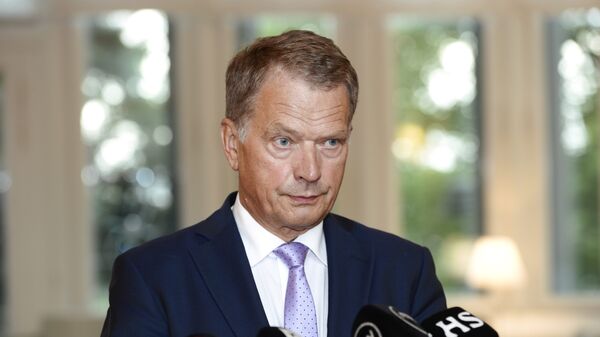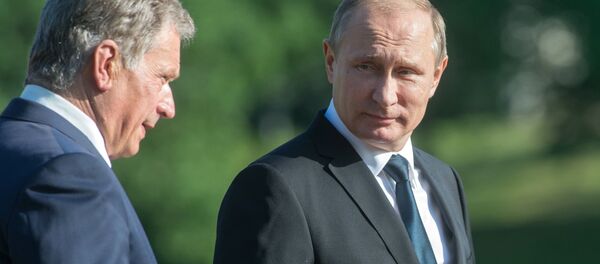The Finnish Defense Ministry's Security Committee has terrified their compatriots with its analysis of Russia's possible meddling in the upcoming presidential election. According to the committee, methods likely to be used include the dissemination of fake news on social media, taking advantage of Finnish influential persons, the discrediting of politicians, sowing mistrust in the election results and even terrorist attacks and assassinations, the Helsingin Sanomat daily reported.
This statement drew poignant criticism from journalists and politicians alike. Timo Haapela from the Ilta-Sanomat daily reminded everyone of the fact that incumbent President Sauli Niinistö's victory is almost a done deal, as he polled an overwhelming 76 percent earlier this month.
"If Russia seeks to sow discord and create divisions, than the Security Committee is doing this admirably," Timo Haapala wrote.
President Niinistö himself, who ironically came under severe criticism from neighbor Sweden last year for maintaining "too close" political ties with his Russian counterpart, lashed out against the report, dismissing it as "trolling." Niinistö said he was particularly shocked by the alleged possibilities of contract killings against Finnish politicians.
"Opinions expressed by a group of anti-trolling experts are a good example of trolling," Niinistö said as quoted by Finnish national broadcaster Yle. "Then there was this statement about hired murderers. You don't just throw such accusations around," he added.
The Kaleva daily joined the chorus of criticism in an editorial.
"What's especially annoying in these talks about indoctrination is that Finns are often portrayed as an easy-to-dupe nation. It seems that the experts also think along these lines," Kaleva's editorial said.
"I believe a major information campaign on social media for or against any particular candidate contradicts, above all, Russia's own interests. It's hard to imagine that Russia would behave so unprofessionally in Finland," he told Yle.
Lastly, Kangaspuro contended that few people living in Russia speak Finnish flawlessly enough to produce credible propaganda.
According to Max Arhippainen, though, communications director at the Defense Ministry and member of the Council for Information Impact, one of Russia's main goals was to kindle criticism of the European Union with the aim of weakening it.
Karstulassa tapahtumatorin avajaisissa. "Suomi tunnetaan maana, johon voi luottaa." Onnea #Karstula 150 vuotta! #Suomi100 pic.twitter.com/naqQ3iIoyl
— TPKanslia (@TPKanslia) October 18, 2017
Presidential elections are scheduled to be held in Finland on January 28, 2018, with a second round on February 11 if necessary. The 69-year-old Niinistö, an independent candidate, who previously represented the National Coalition Party, maintains an overwhelming lead over Pekka Haavisto of the Green Party.
Finland, Taloustutkimus poll:
— Europe Elects (@EuropeElects) October 15, 2017
Niinistö (KOK-EPP): 96%
Huhtasaari (PS-ECR): 4%





